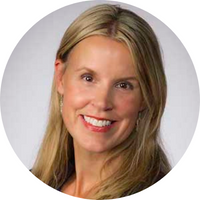
You have spent years leading teams. What have you learned about leading teams that other team leaders might find helpful?
I have been the beneficiary of principles applied by remarkable leaders during my career. Here are some of the most valuable leadership lessons I have learned:
- Clearly articulate the vision, objectives, and expectations and align all activities to the vision.
- Seek diversity of thought across the team, which will produce superior results.
- Give recognition, whether public or private, in the manner a team member prefers to receive it.
- Spread the praise (when things go right) and take the blame (accepting personal responsibility when things go wrong).
- Give timely feedback and graciously receive it.
- Be honest: do not promise something you cannot deliver. If you make a promise, you better deliver.
- Create win-win situations: a win for the individual (a stretch assignment, a high-visibility project) and a win for the organization (better performance and higher results).
- Admit mistakes and learn from them.
- Regularly re-recruit team members, reminding them of their contributions to the team.
- Practice cultural literacy.
You earned a Chemical Engineering degree from Missouri-Columbia, and an MBA from Michigan State. Which coursework challenged you more?
The engineering work was actually more challenging: organic chemistry and thermodynamics come to mind. However, I greatly appreciated my MBA coursework because I was already a marketing practitioner, and my MBA gave me a deeper understanding of topics such as finance and strategy that I could immediately apply on the job.
What led you to pursue the MBA, rather than an advanced degree in chemical engineering?
First, I share with anyone who has an interest in science and math to consider pursuing a degree in engineering because graduates have skill sets that tend to be immediately employable. Frankly, I have found – like many – that an engineering degree coupled with an MBA provides more career optionality: one can be a good scientist who grasps critical success factors for commercialization opportunities, or alternatively, a good business professional who understands the fundamentals of application development.
After spending 27 years at Dow, you moved to your current job at CoorsTek. Adjusting to a new company after all that time can be challenging. To make things more interesting, your new job almost perfectly coincided with the global explosion of COVID-19. What has the last half-year been like for you?
Life has certainly been interesting! Over my career, I have benefited considerably from a strong network. After working in several Dow functions and multiple business divisions for nearly three decades, I was probably just one or two degrees of separation from anyone at Dow. For a number of years, I have nurtured a “call list” that I review every Friday to note who I interacted with that week, and who I should proactively meet the following week.
Within my first two weeks at CoorsTek, and thanks to great planning by the onboarding team, I met over 40 new colleagues – all remotely! – and I have been building this network since then. Admittedly, due to the current COVID-19 environment, I have not been able to introduce myself to new colleagues with a handshake, nor have I been able to travel to meet customers or colleagues … yet. Still, everyone I have met at CoorsTek has been gracious to ensure I have experienced a solid onboarding process. I have been extremely fortunate to work at two exceptional companies.
The CoorsTek website states that “By utilizing over half of the world's known elements in our material formulations …” What are some of the more difficult elements to obtain, particularly during these times of pandemic-induced supply chain disruptions?
The CoorsTek technical ceramics portfolio is indeed impressive. As a routine practice, the CoorsTek team closely analyzes industry conditions and maintains supply/demand balances to ensure customer orders are fulfilled, and these activities have been even more pronounced during COVID-19.
On a related note, what should early-career chemists know about being an effective and productive member of a team?
People are hired into their jobs because of their IQ. In other words, they have the intellect to fulfill key job responsibilities, and presumably the early-career chemist is achieving results commensurate with their role. However, to be an effective team member, it is essential to have a solid EQ, or the emotional quotient to possess self-awareness, guide behaviors when relating to others, and adapt well to new environments and conditions.
How did your parents influence your leadership style?
In my case it seems that engineering was inescapably genetic – my Dad is a geophysical engineer – and much of my pragmatic, left-brain thinking I inherited from him. I learned diplomacy and mediation from my Mom. Both my parents firmly believe in the power of education, each earning graduate degrees in their respective fields, and they sacrificed a lot for my sister and I to receive a good education. They have taught me that learning is a life-long process. My parents have been very influential in my leadership style as role models in integrity, determination, hard work, volunteerism, and humility.
What is the one personality trait that has been most instrumental in your career success?
Allow me to answer this in conjunction with the last question. I would like to quote Ginni Rometty, former CEO of IBM, who once said, “The most important thing for any of us to be in our jobs is curious.” Curiosity is an essential component of both a good scientist as well as a good marketer, and I am fascinated by human ingenuity. Curiosity is a key trait that has served me well, when as an engineer I have asked, “How does that reactor work?” and as a marketer, “What motivates that buying behavior?”
You pursued an alternative career with your science degree. What is the profile of a chemist or chemical engineer who would find your line of work interesting and rewarding?
Some attributes are: interest in a high level of customer interaction; being comfortable with ambiguity and assumption-making by applying rational thought with available data; being willing to take risk, fail fast, and adapt quickly; and, being able to develop and pitch a compelling business case.
If you had a 25th hour in the day today, what would you do with that extra hour?
The wonderful 25th hour is why I relish the end of daylight savings time, which is coming up soon! Without question, I would spend the extra hour with my family, eating take-out food from a great local restaurant.
You get to have dinner with any business leader, living or dead, OR any scientist, living or dead. Which person will you dine with, and what would you talk about?
I would really enjoy having dinner with Ginni Rometty. Last year Ginni was the keynote speaker at an innovation award ceremony while she was CEO of IBM, and I was in the audience with the privilege of hearing her witty, motivational speech. Ginni similarly comes from a science background, hired at IBM with a computer science degree, and subsequently transitioned to progressively larger business roles.
I find Ginni’s background and her character to be immensely inspirational. So, I trust we would have a lengthy dinner conversation about her experiences, straddling between tech-speak and business-speak, and discuss some of her hardest-won successes over the course of her still-active illustrious career.

Lynn joined CoorsTek as Vice President of Strategic Marketing in April 2020. In this role, Lynn leads strategic marketing, strategic insights, and pricing excellence, developing an integrated strategy to drive new market and new product growth. An imperative for this role is to work cross-functionally and with customers to identify innovation opportunities and accelerate commercialization of new materials.
Prior to joining CoorsTek, Lynn worked at Dow Inc. for 27 years in diverse roles spanning commercial, R&D, technical service, new business development, M&A, and her area of greatest passion, marketing. Lynn has both B2B and B2C experience in various industries including Construction, Home Care, Agriculture, and Personal Care markets.
Lynn is a strong advocate for networking and mentoring, as well as involvement in community organizations. Before the recent move from Michigan to Colorado, Lynn was a board member of Shelterhouse, an emergency shelter for victims of domestic violence, and previously served on the board of the American Marketing Association-Detroit Chapter and the Michigan State University Executive MBA Alumni board. Lynn earned a degree in Chemical Engineering from University of Missouri-Columbia and an MBA from Michigan State University. Lynn and her husband reside in Boulder County, Colorado and enjoy running and hiking and spending time with family.
This article has been edited for length and clarity. The opinions expressed in this article are the author's own and do not necessarily reflect the view of their employer or the American Chemical Society.
Copyright 2020 American Chemical Society (All Rights Reserved)









